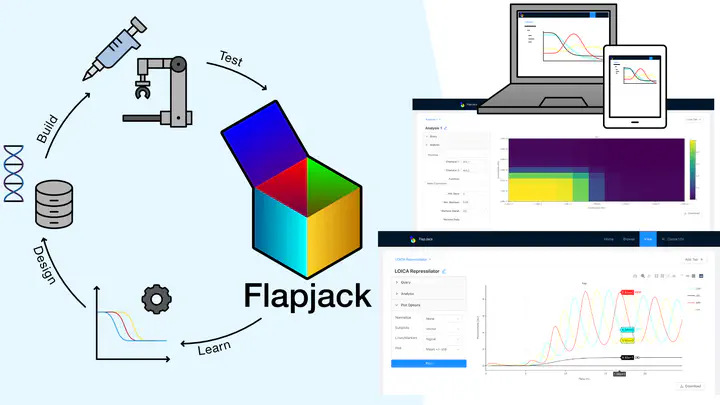pyFlapjack
 Photo by Gonza10V
Photo by Gonza10VCharacterization is fundamental to the design, build, test, learn (DBTL) cycle for engineering synthetic genetic circuits. Components must be described in such a way as to account for their behavior in a range of contexts. Measurements and associated metadata, including part composition, constitute the test phase of the DBTL cycle. These data may consist of measurements of thousands of circuits, measured in hundreds of conditions, in multiple assays potentially performed in different laboratories and using different techniques. In order to inform the learn phase this large volume of data must be filtered, collated, and analyzed. Characterization consists of using this data to parametrize models of component function in different contexts, and combining them to predict behaviors of novel circuits. Tools to store, organize, share, and analyze large volumes of measurement and metadata are therefore essential to linking the test phase to the build and learn phases, closing the loop of the DBTL cycle. Here we present such a system, implemented as a web app with a backend data registry and analysis engine. An interactive frontend provides powerful querying, plotting, and analysis tools, and we provide a REST API and Python package for full integration with external build and learn software. All measurements are associated with circuit part composition via SBOL (Synthetic Biology Open Language). We demonstrate our tool by characterizing a range of genetic components and circuits according to composition and context.